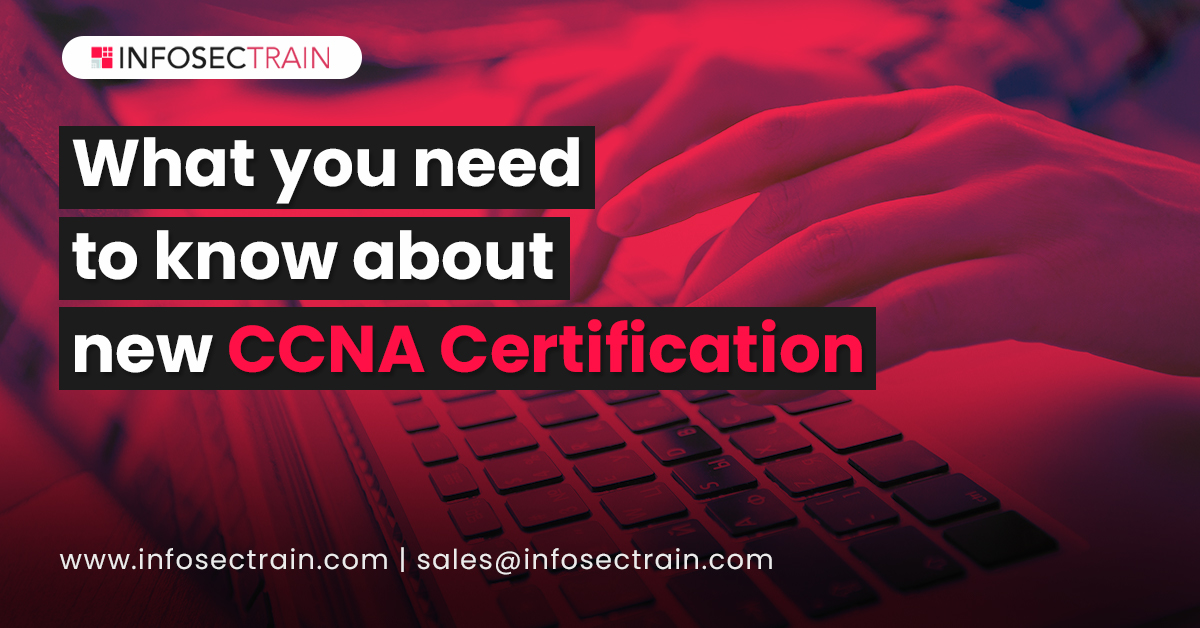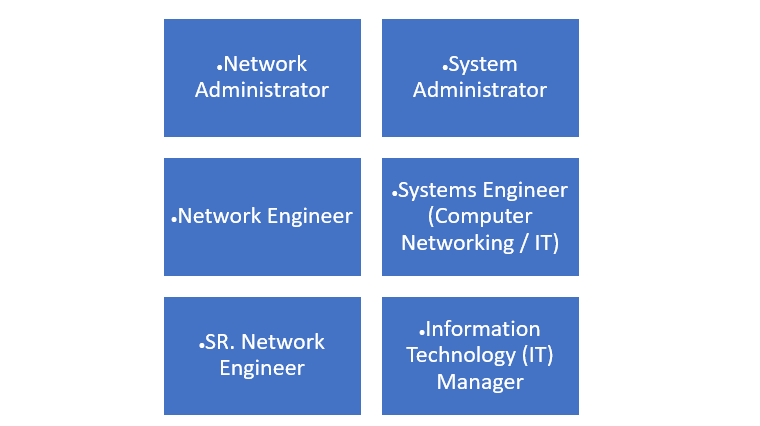What you need to know about new CCNA certification
Cisco Certified Network Associate (CCNA) is a technical certification offered by Cisco for networking professionals. Cisco is the world’s most renowned company for manufacturing and selling networking equipment. The CCNA 200-301 exam tests professionals’ skills in networking fundamentals, networking access, IP connectivity, and some other networking protocols. As this is an associate-level exam, It does not demand any prerequisite knowledge. You only have to know about the course curriculum. CCNA certification takes you from the basics of networking to the intermediate level and provides the necessary skillset and knowledge required for the most in-demand IT job roles.

The Significant Changes to Cisco Certifications in 2019
Cisco has announced some significant changes in its CCNA certification program in mid-2019. Many of you have read or heard about the old version of the CCNA certification exam. Before 2019 Cisco used to offer ten separate certification paths for different types of technologies. In the revised pattern, all the tracks now begin with the one remaining CCNA certification content. Cisco retired all the CCNA certifications except what was then known as “CCNA Routing and Switching,” which became simply CCNA. The new CCNA exam is more straightforward and provides more transparency. At the Associate level, there is one curriculum and one exam. However, there are more certification paths available at the CCNP level if you want to dive deeper into some specific areas of your interest.
Reasons why you should get a CCNA certification
- You will be certified by the world’s networking leader, so your skills will be more in demand.
- CCNA certification training will provide you more career options like network programmability, Wireless, security, and many more.
- Online CCNA certification will keep you updated about all the latest technology changes.
- Cisco CCNA certification prepares you for network evolution in the digital era. As the world is going towards digitization, the network infrastructure is experiencing a drastic change.
- Research indicated that IT professionals with CCNA Certification perform at a higher level than those who are not certified.
- Cisco CCNA Certification is like proof that validates the proficiency and skills that you have covered during training.
CCNA Exam details
| Exam Code | CCNA 200-301 |
| Duration | 120 minutes |
| Number of questions | 100-120 |
| Languages | English, Japanese |
| Passing Score | 800-850 (On a scale of 1000) |
Type of questions: Multiple-choice (single-answer), Multiple-choice (multiple-answer), Testlet (one scenario with multiple multiple-choice questions), Drag-and-drop, Simulated lab (sim), and Simlet.
The first four types of questions would be familiar to you. The last two are more common to IT exams. Both use simulator so that you can control and use Cisco network devices.
- Sim questions: You see a network topology and lab scenario and can access the devices. You have to fix a problem with the configuration.
- Simlet questions: This style combines sim and testlet question formats. As with a sim question, you see a network topology and lab scenario and access the devices. However, as with a testlet, you also see multiple multiple-choice questions. Instead of changing configurations, you have to answer the current state of the network.
Prerequisites for CCNA (200-301)
The CCNA exam requires no formal prerequisites, but it is recommended to have a basic understanding of the IP addressing and Networking fundamentals. Having one year of experience in implementing and managing Cisco solutions is a plus.
Cisco CCNA Certification exam domains
- Networking Fundamentals : The networking Fundamentals is the first domain of the CCNA certification exam. It carries a weightage of 20% in the exam. The following subdomains are included in it:
- Explain the importance and uses of networking devices like routers, switches, hubs, etc.
- Types of network topologies used and types of cabling
- TCP and UDP protocols
- IPV4 and IPV6
- Wireless principles
- Network Access : The Network Access domain also carries the weightage of 20% in the exam. The domain includes the following subtopics:
- VLANs (Virtual Local Area Network)
- Interswitch connectivity
- Cisco Discovery Protocol and LLDP (Link Layer Discovery Protocol)
- Wireless architectures, RSTP (Rapid Spanning Tree Protocol), and WLAN (Wireless Local Area Network) Components
- IP Connectivity : The IP Service domain carries a weightage of 25% in the exam. The domains include the following subtopics:
- Routing protocol code- you will get familiar with the codes for connected routes, static routes, local routes, and OSPF routes
- Interpreting components of the routing table
- Knowing how a router makes a forwarding decision by default, and FHRP (First Hop Redundancy Protocol)
- IP Services : The IP service domain carries the weightage of 10% in the exam. It makes us aware of NAT’s configuration & verification (Network Address Translation) static and pool and NTP (Network Time Protocol) operating in client and server mode. This module also covers:
- DHCP (Dynamic Host Control Protocol)
- DNS (Domain Name System)
- SMTP (Simple Mail Transfer Protocol)
- The functions of FTP in a network
- Security Fundamentals : As we all know, security is an essential aspect of the networking domain. Therefore, this module is added to the CCNA Certification exam. The Security Fundamentals module carries a 15% exam weightage. It takes you from the basics of security and types of attacks to create a more secure network. From the beginning of this module, you will understand threats, vulnerabilities, attacks, and mitigation techniques. You will learn how to apply them to protect the network infrastructure. This module also teaches about:
- Layer 2 security like DHCP snooping
- Dynamic ARP inspection
- Port security
- Wireless security protocols like WPA, WPA2, WPA3
Automation and Programmability : This module gives an insight into how automation leaves an impact on network management. The Automation and Programmability domain carries the exam weightage of 10%. This section is pretty light, but it opens up new topics that were unknown to network engineers. As the network becomes big and complex, it is required to know which traffic is passing through our network. The automation and programmability will help us in doing that. The module also covers:
- Characteristics of REST-based APIs (CRUD, HTTP verbs, and data encoding)
- How to configure management mechanism like Puppet, Chef, Ansible
- Interpreting JSON data
- Controller-based networking
- Cisco DNA Center enabled device management
Who should get the new CCNA Certification?
The following job roles can get benefited from the new CCNA (200-301) certification:

Scheduling the CCNA exam
You can schedule your exam at the Pearson VUE test center by creating an account. After successfully creating an account, you can get the details of the test centers around you. Select the proctored examination and examination code (CCNA 200-301). Pay the examination fee and schedule the date of examination as per your convenience. The exam will be available in English and Japanese language.
You can also take the examination from your home and office, but you need to agree with security policies and exam guidelines. You must meet specific exam environment and system requirements.
How can You get Cisco CCNA certification training?
Infosec Train provides training for CCNA 200-301 certification with practical hands-on experience using the best networking tools like Cisco packet tracer and GNS3. Infosec Train is one of the best organizations in delivering advanced IT security training. Our Certified instructors are well-versed in their respective domains, and they have years of industry experience. You can enroll in our Online CCNA Certification Training. We provide support to our trainees even after training completion if they come across any problem.




 1800-843-7890 (India)
1800-843-7890 (India) 
